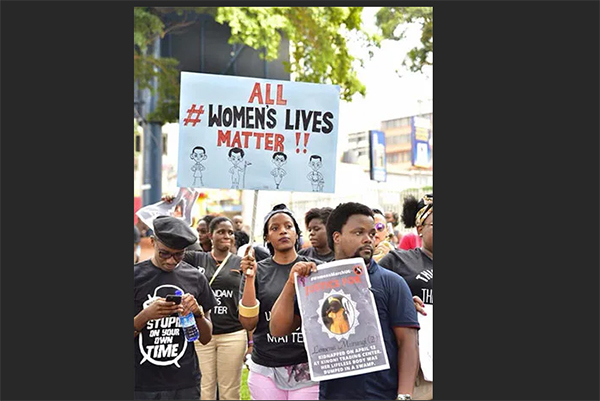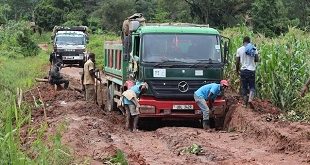
COMMENT | Olivia Nalubwama | Dear reader, Happy New Year!
With the customary niceties out of the way, let us resume our dalliance with the state of governance in Uganda. In case you missed it, there is a raging online debate about the relevance of activism in NRM’s Uganda.
In one corner is veteran radio personality James Onen/Fatboy who sneers at activism as performative hot air; in the opposite corner is journalist Raymond Mujuni who argues dumbing down activism is elite folly.
Dear reader, in a poor country like Uganda that is yet to experience a peaceful political transition, we need all the activism we can mobilize and organise. To illustrate – here is a name. Stephen Mugisa. If you haven’t heard of him, it is not your fault. He was not a ‘clown’ or an activist or an influencer baddie or your favourite religious leader.
Outside his family and community in beautiful Kabarole district, he was a nobody. Stephen Mugisa was an 18-year-old man, one of millions of youths in a country bursting at its seams with youthful bodies. In September 2024, NTV news brought Stephen Mugisa into the narrow orbits of our lives.
NTV reported that Mugisa was accused of theft. When the police arrived at his home to apprehend him, Mugisa was absent. Instead, our quick-thinking law-abiding officers arrested his mother. She narrates that she couldn’t identify who arrested her as they were not uniformed. Dressed like a typical woman in the village – a lesu tied over her purple dress, a scarf wrapped around her head, she is your unremarkable nobody going about her humdrum life.
Leaning against a mud wall, she cuts a forlorn figure, her tayad eyes fatigued with pain, she calmly describes how the police held her for five days – no statement was taken from her during that time. The scene transitions to a simple mud house – the quintessential village house, a curtain billowing lightly in the doorway, and a small window on either side.
On the grassy patch in front of the house, a dark-skinned sinewy man sits on a chair, pristine in a white shirt and black trousers, a Muslim cap on his head – Mugisa’s father. He reveals that when news reached him of his son’s arrest, fear gripped his heart.
The arresting officers had claimed his son was accused of murder. Restless, he rushed to the police station to see his son. The camera then zooms onto his face as tears run down his face. There is something utterly defeating about the tearful breaking of a grown man. He recounts that he spoke to his son who denied being involved in the theft (no mention of the murder accusation).
The next day, his sister goes to the police station to take food for her brother. The kind of task suitable for a family of nobodies. She is unsuccessful in her mundane quest. The police tell her that her brother has been taken ‘for investigations’. Shortly after the sister’s unsuccessful visit, Mugisa’s father receives a call from his wife.
His son is dead. Unbelieving that the son he had seen alive and well in police custody was now dead, the father rushes to the morgue.
Dear reader, it gets worse. For nobodies. At the morgue, he finds his son’s body. “All his nails had been removed, his elbows had been shattered. His knees and ankles were also broken. His head was also hit hard and had a big wound which had been sewn…when we turned the body, blood oozed out of his private parts…”
Mugisa’s sister continues, where words fail her, she gestures emphatically to convey the brutalized state of her brother’s body, “The private parts (looked) as if they had tied them… they were big in size”.
The police spokesperson admits that one of their own, officer Davis Ashton Arinaitwe, interrogated Mugisa in ‘a very unprofessional manner.’ Having tortured Mugisa to death, Arinaitwe went on the run. NTV journalist Benjamin Jumbe ends the horrifying report with a close-up of Mugisa’s grave – a plain wooden cross sunk into a mound of soil surrounded by the thicket and its accompanying sounds. The grave of a nobody.
Mugisa’s family now go about their humdrum lives in limbo, a cruel purgatory for the living – waiting for justice for their son. Oddly, New Vision newspaper has a different version of Mugisa’s death in police custody. In this version, the police are the good guys, Mugisa – the bad guy.
On June 18, 2024 (the day of Mugisa’s burial), New Vision reported that on June 15, Flying Squad officers signed Mugisa out of police custody for an interrogation. During the interrogation, Mugisa disclosed the location of the stolen items which police subsequently set out to recover with Mugisa still in their custody.
Along the way, Mugisa allegedly sought to escape and jumped out of the moving vehicle, hitting his head on a stone pavement which led to his death. As for the culprit, Davis Ashton Arinaitwe – since the September 26, 2024 NTV news feature on the torture and death of Mugisa, there has been no further update from the police. Even Google does not know.
For a country with thickset law enforcement that nimbly arrests opposition members with the dexterity of a giant magnet picking out a needle from a haystack in neighbouring Kenya, it is quite anti-climactic that the police have yet to catch up with Arinaitwe.
The family of the late is an ordinary peasant family, faceless, nameless nobodies until injustice marked them irrevocably. For such nobodies, there is no gilded access to the privileged corridors of power. There is no Minister Balaam to wave his yellow magic wand and usher them into the State House where they would receive the tokenistic five million condolence money from the president.
Without media houses like NTV bringing these ordinary stories of nobodies becoming somebodies thanks to impunity and injustice – who would say his name?
Dear reader, while we enjoy the luxury of shooting down activists, irritated by their stunts, such is our robust privilege – we don’t need those activists shouting for us or anyone we know. We are nobodies. Should we ever become somebodies in need of irritating noises on our behalf, may the activism we disdained look past our high IQs and cushy lives – for don’t we all want the same thing?
A Uganda that functions for every Ugandan – nobodies and somebodies. A Uganda that will fight for the late Stephen Mugisa and many others like him.
*******
 Olivia Nalubwama is a “tayaad Muzukulu, tired of mediocrity and impunity” smugmountain@gmail.com
Olivia Nalubwama is a “tayaad Muzukulu, tired of mediocrity and impunity” smugmountain@gmail.com
THIS ARTICLE WAS FIRST PUBLISHED IN THE OBSERVER
 The Independent Uganda: You get the Truth we Pay the Price
The Independent Uganda: You get the Truth we Pay the Price



